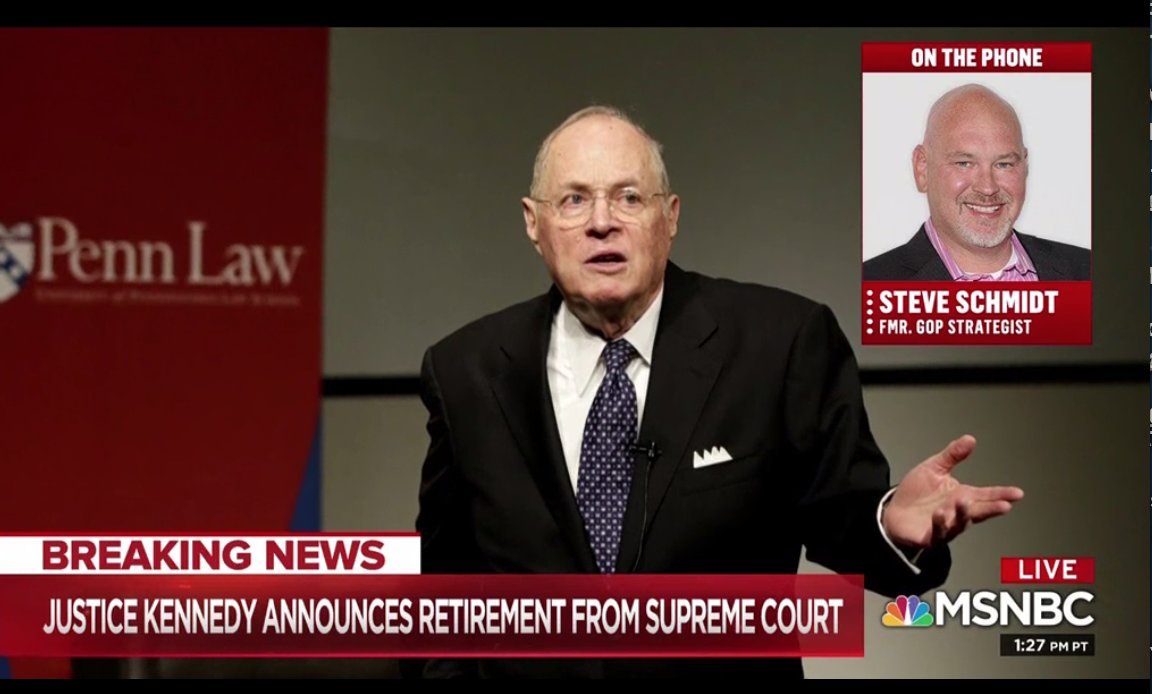Not A Surprise #1 -- the majority opinion was authored by Kennedy.
Not A Surprise #2 -- Thomas wrote separately to say "Y'all got the law right but the law is fndamentally wrong."
Not A Surprise #3 -- Ginsburg dissents.
Gorsuch joins Thomas' concurrence.
BRB
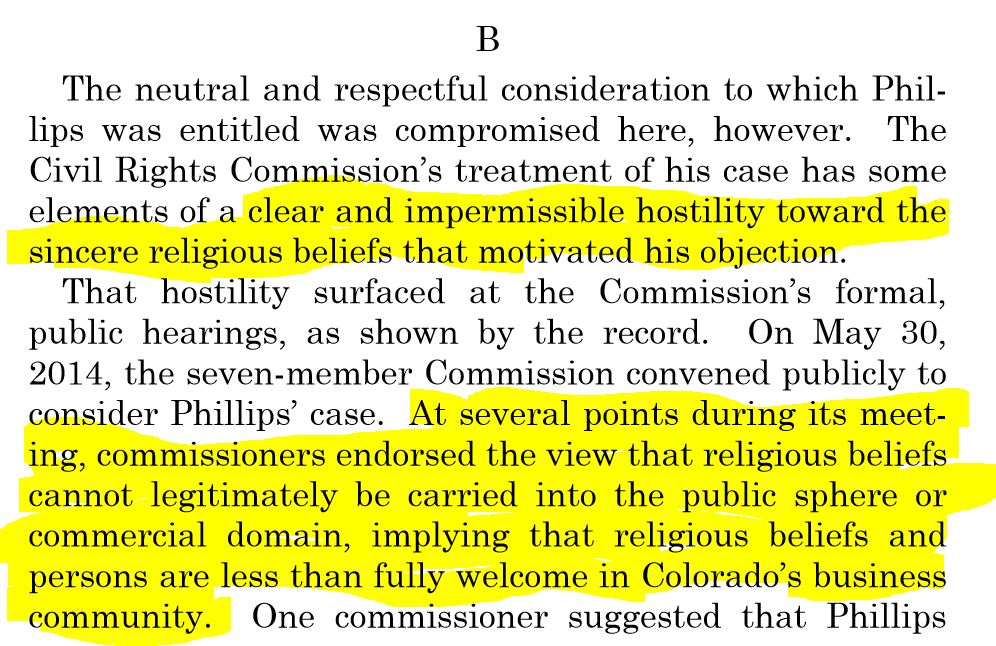
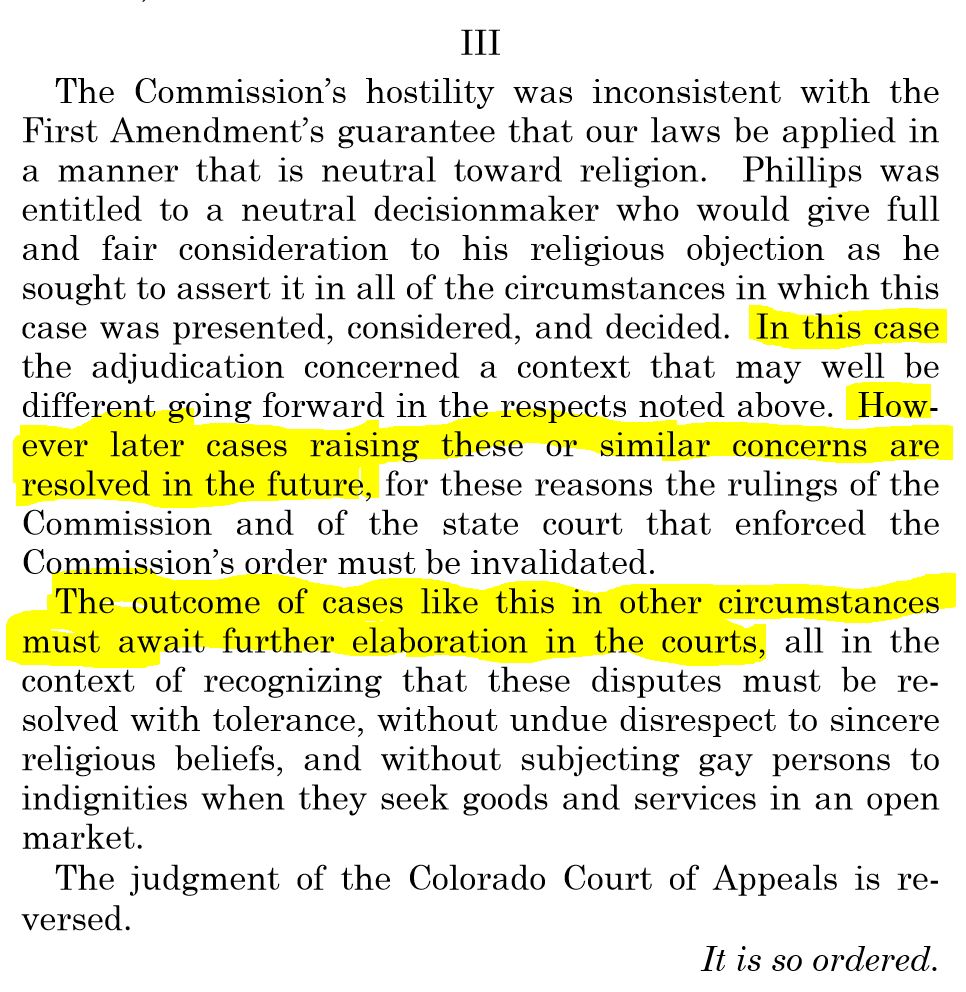
They couldn't even come around to affirmatively and clearly saying "The holding of this case must be understood as limited to the facts described herein."
But the facts of this case requires the Court to choose one interest -- religious privilege or equal dignity -- over the other. And the Justices have announced their choice.

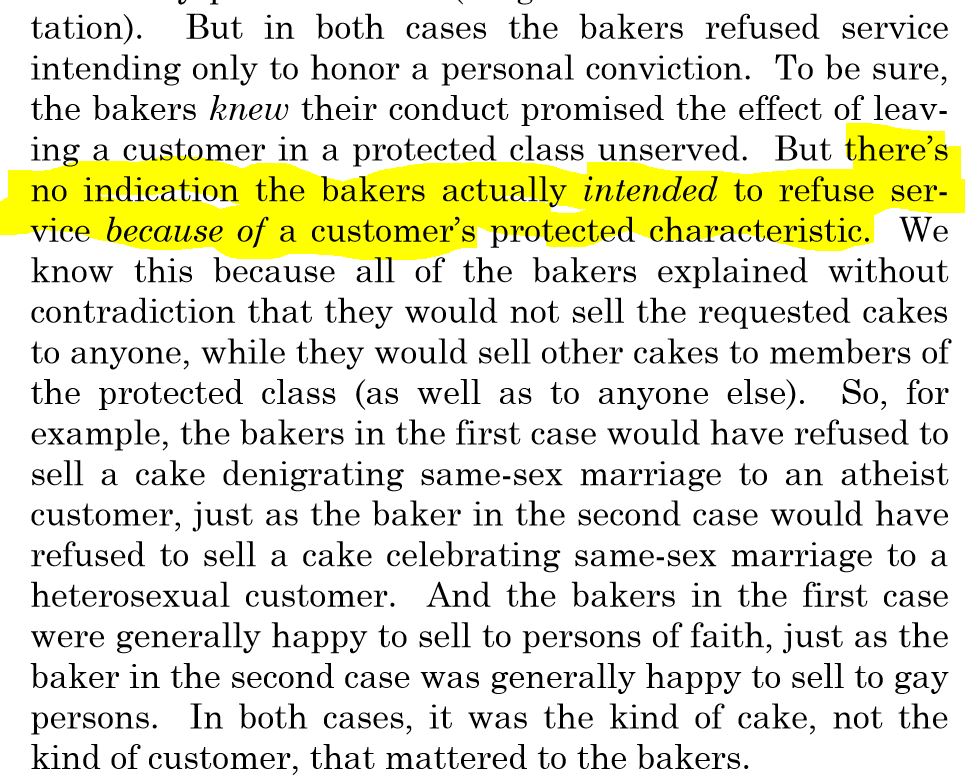
And that fellow does not like paragraph breaks.
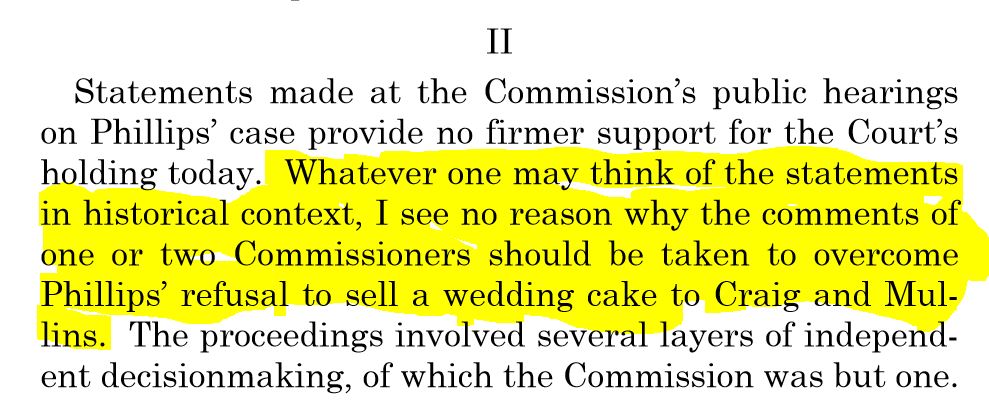
Today's case rips open a protective strand in the law left in the Hobby Lobby case, one that offers an avenue of seepage that will allow erosion into a critical foundation of the very concept of law: the universality of its application.
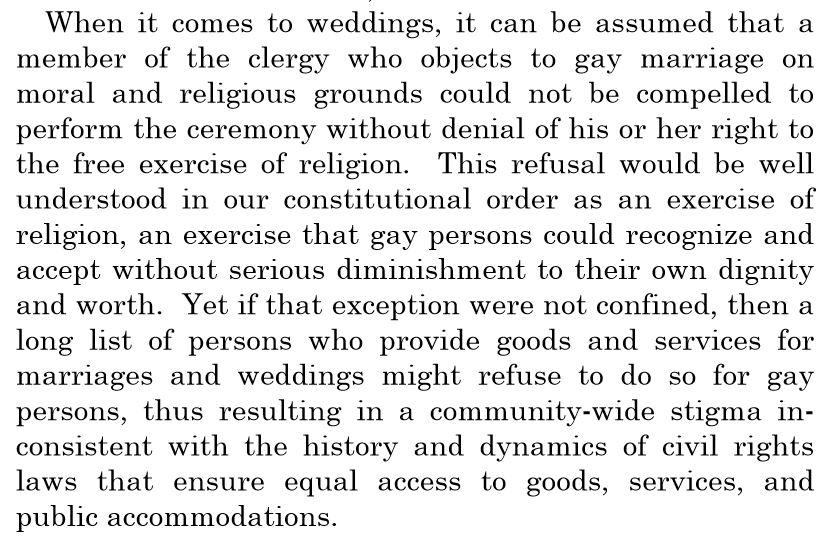
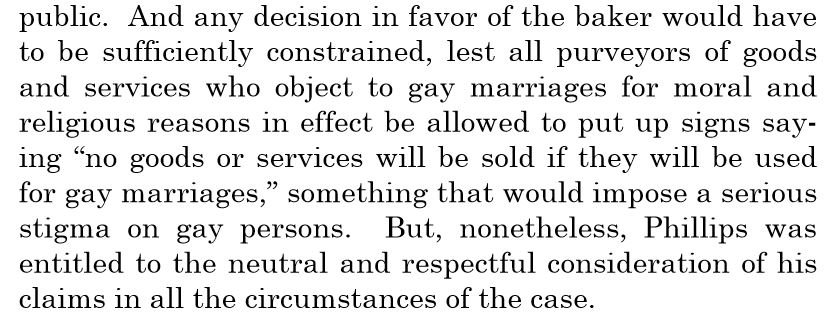
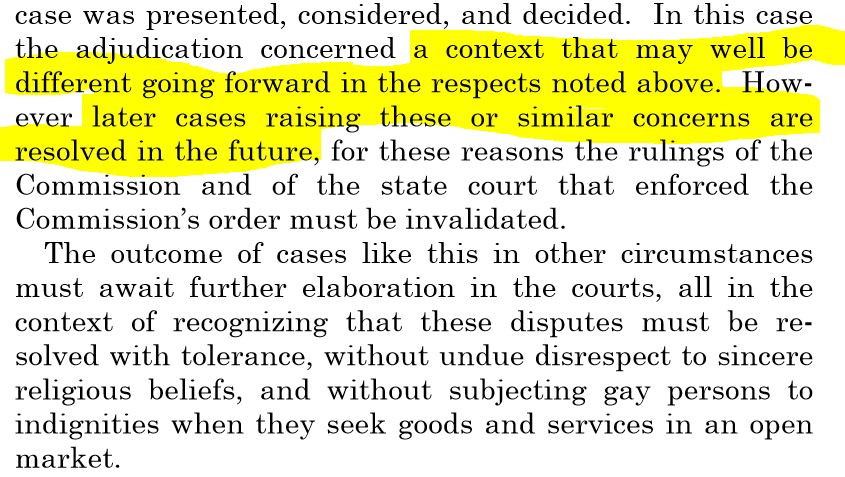
@AkivaMCohen is correct to point out that the majority wants this exception to have constraints, some limits.
We just have no idea what those constraints or limits might be.



